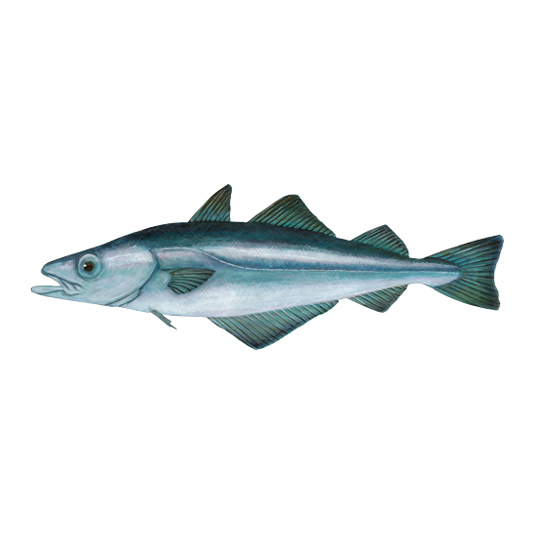23 January 2024
The National Federation of Fishermen’s Organisations (NFFO) has called for a two-stage response to the crisis engulfing the inshore fleets, following the decision to cut the total allowable catch to an unmanageable 832 tonnes, with a risible UK quota of 203 tonnes for 2023.
Draconian Cuts following Benchmarks
This draconian cut to the pollack quota has followed a radical change in perception of the stock by ICES scientists, following one of their periodic benchmark meetings; but there are sound reasons to question whether this opinion will be sustained when the assessment is revisited in the future. ICES benchmark exercises are important as they allow the science to evolve. By questioning the models used, and the data employed, weaknesses can be weeded out.
But when benchmark exercises result in extreme volatility in stock perception, followed by radical changes in recommended TACs, a mechanism is needed to moderate these swings. Scientists don’t make the right call 100% of the time. There are already several examples of scientific opinions reverting to the original view further down the road, but by then the damage is done. So long as the biomass is projected to increase in the following year, a management mechanism is required to reduce the volatility and filter out radical swings – either way, up or down. It makes no sense to inflict serious socio-economic damage on the fleets – only to follow a revised opinion later.
Most ICES assessments are uncontroversial but a pattern is emerging where benchmarks are followed by extreme swings in advice. That is what has happened with pollack.
TAC Constraints
TAC constraints – minimising the extent of TAC swings to, say 15%, have been employed effectively in the past but seem to have dropped out of fashion. Applying a TAC constraint would have moderated the TAC reduction for pollack in 2023, but would have still seen the biomass increase by the end of 2024. As it is, the year-end quota negotiations have left us with an unmanageable fishery for the coming year. This is a chaotic way to manage fisheries and we need to move beyond it as a matter of urgency. A mid-year review of the TAC decision is required to retrospectively apply some kind of TAC constraint. The UK should initiate discussions with the EU immediately to rescue this situation.
Longer Term
In the longer term, ICES should examine whether the form in which it provides advice is as useful to fisheries managers as it might be. In recent years there has been some attempt to supplement zero TAC advice with options to deal with unavoidable bycatch – but this doesn’t help where, like pollack, a substantial part of the catch is targeted. Limiting extreme swings in the advice, especially when there might be doubts about the safety of those opinions, would help to avoid catastrophic mistakes with serious real-world consequences.
In the meantime, however, an urgent intervention is required by fisheries managers (and in this context this means the UK and the EU) to call off the dogs.
Knock-on Effects
Our immediate concern has to be for the fleets targeting pollack – many of them small inshore vessels – with few if any alternative opportunities to sustain them during 2023. There are, however, already signs of diversion of effort with potentially destabilising consequences in adjacent fisheries. We fear that the progress in rebuilding the biomass of the bass stock will be impeded if faced with increased effort. Likewise, redirection into non-quota fisheries like crab, lobster and crawfish could do untold harm to stocks and conservation strategies. In a word, the TAC decision on pollack could set us back years in a range of other fisheries.
Pragmatism
What is required at this juncture is a healthy dose of pragmatism. Client Earth’s attempt to use the European Court to tie the EU to rigid formulaic rules in setting TACs is now likely to be defeated, following the ECJ’s recently released provisional judgement. We are reasonably confident that Blue Marine’s legal manoeuvring will meet the same fate, not least because the UK’s Fisheries Act provides explicit flexibilities to meet complex situations of this kind.
What is required is a pragmatic and urgent intervention by the management authorities to avert the immediate crisis, followed by a longer-term evaluation of how to avoid getting into this situation again. This would allow time also to develop a suite of measures to rebuild and sustain the pollack stock through more intelligent management measures, applied with the support and involvement of the fishing industry. Better data, more targeted measures, real-time information from the fishery (including from the significant recreational fishery) could all be in the mix.
The priority for now, however, is to revisit the TAC decision immediately.

